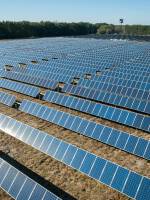
According to data from the U.S. Department of Agriculture, between 2021 and 2023, Vietnam ranked 6th among the world’s top pork producers. Among the ten largest pork-consuming nations, Vietnam also holds the 6th position.
Pork consumption per capita in Vietnam has steadily increased in recent years. Specifically, in 2021, the average Vietnamese consumed about 30kg of pork per year. This figure rose to 32kg in 2022 and reached 33.8kg in 2023. Pork remains a staple in Vietnamese meals.
To meet the demands of its 100 million residents and over 10 million international tourists, Vietnam’s pig farming industry has expanded significantly in recent years.
In 2023, the total number of pigs sent to market increased to 52.9 million, producing over 4.8 million tons of pork. By the end of June this year, the country’s pig population was estimated at nearly 25.55 million, producing nearly 2.54 million tons of pork, a 5.1% increase compared to the same period in 2023.
As the pig farming industry grows, so does the volume of solid and liquid waste it generates. According to estimates from the Department of Livestock Production (Ministry of Agriculture and Rural Development), between 2019 and 2023, an average of 63.2 million tons of manure and over 348.9 million cubic meters of livestock wastewater were generated annually from major livestock species, requiring treatment and reuse to protect the environment. Pig farming alone accounts for 39% of solid waste and 90% of wastewater in the livestock sector.
Pig farming, along with cattle farming, contributes significantly to greenhouse gas emissions in the livestock sector.
On average, a standard 90kg pig produces approximately 438kg of CO2 equivalent emissions, meaning that each kilogram of pork emits about 4.84kg of CO2 equivalent.
With Vietnam producing around 50 million pigs annually, greenhouse gas emissions from pig farming are the highest in the livestock sector, totaling about 22 million tons of CO2 equivalent per year.
In a draft decree amending and supplementing several articles of Decree No. 06/2022/ND-CP, dated January 7, 2022, on greenhouse gas emissions reduction and ozone layer protection, the Ministry of Natural Resources and Environment has included the livestock sector (pigs and cattle) in the list of establishments required to inventory greenhouse gas emissions.
According to the draft, pig farms with 3,000 or more pigs will need to conduct greenhouse gas inventories and subsequently reduce emissions according to assigned quotas.
Pham Kim Dang, Deputy Director of the Department of Livestock Production, noted that some of the waste from pig farming is treated to produce organic fertilizers or used as raw materials for biogas systems, renewable energy production, and insect farming.
Additionally, various technologies are currently applied in pig farming facilities to control environmental issues and reduce pollution.
For instance, high-tech closed farming systems commonly use automation to control the microclimate within barns, including temperature, humidity, wind speed, and emissions of gases like CO2, NH3, and H2S, using electronic sensors. Farms are also actively utilizing renewable energy to maintain production activities.
Moreover, businesses and farmers are investing in biogas technology to treat livestock waste, producing clean energy and organic fertilizers. The use of biological bedding to manage waste, improve the farming environment, and produce compost for crops after treatment is also on the rise.
Vietnam’s feed production factories are gradually transitioning to green production, following a roadmap to reduce net carbon emissions, as committed by the government.
Between 2010 and 2016, the Department of Livestock Production led the development of a carbon credit project under the Gold Standard mechanism, supporting livestock households in installing biogas recovery systems to use as fuel for production and daily activities. Through this carbon credit mechanism, over 3 million carbon credits were issued and traded during the project’s lifecycle.
Tam An




